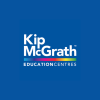Stress free studying that works
This guide has a whole month’s worth of ideas and resources to help students (and parents/carers) get to grips with stress-free studying that works!
Our rules
- If you know how to study, you can achieve better results in less time. Who wouldn’t want that?
- Don’t write yourself off before you’ve even started. A positive attitude makes all the difference!
- Keep it short – sprints generate far more energy and excitement than marathons.
- Mix it up – try and use activities that use auditory/hearing, visual and hands-on methods.
Active v Passive Learning
Have you heard the following quote from Benjamin Franklin, “Tell me, and I forget, teach me, and I may remember, involve me, and I learn?” It is proven that people learn better if they are actively involved in what they are doing. You may not be surprised to hear that reading a textbook is a passive activity, and you are likely to forget most of what you read!
A study activity for every day of the month
Don’t know where to start? Here is a different revision activity for every day of the month – so mix it up and try doing at least 2 different activities every day. With exams looming, a small amount of revision every day (starting now if you have not already!) is really going to pay off in May/June.
- Summarise a passage in 15 words max (harder than it sounds!)
- Make a spider-diagram.
- Think of 3 to 5 real-life examples of what you’ve read.
- Decide which is the best of your examples.
- List 50 mini questions about the subject. (Imagine testing someone else.)
- Write answers to your mini questions.
- Write a study plan for the week ahead.
- Keep a reflective study journal.
- Sum up the 3 most important points of a lesson or chapter.
- What is the most critical aspect, and why?
- Make a wallchart or large plan and link aspects together.
- Decide which is the best book you are using and why.
- Which section of the book is most interesting or useful? Why?
- Pretend you disagree with everything you’re reading and explain why. Argue your case. What examples would you use to support this?
- Invent titles for essays or reports and spend 5 minutes writing a plan.
- List the key points for one aspect of your studies.
- Draw a picture or symbol for each point.
- Discuss your ideas or difficulties.
- Contribute to an online chat or discussion or start one.
- Write the main points of an essay or answer on cards or sticky notes and move them around to explore different structures.
- Teaching topics to others is a great way to learn. Make a PowerPoint presentation about what you are revising and teach it to someone else (even your pet!)
- Create podcasts using voice memos on your phone and then listen back to them on the bus or walking to school.
- The app Chegg Flashcards https://www.chegg.com/flashcards is fab and free and can’t get lost, eaten or smothered in jam! Use this app to test yourself anywhere randomly, anytime.
- Even good old-fashioned revision cards work better on the move.
- Create big, colourful posters or a mind map for each topic.
- Revise different subjects in different rooms in your house. Visualise the room to trigger your memory in the exam.
- Invent mnemonics for factual terms or spellings (Big Elephants Always Understand Small Elephants = BECAUSE)
- Create acronyms to synthesise information into just one word (doesn’t need to be a real word). Google some examples.
- Write out your notes a few times, condensing them down each time to fewer and fewer words that will trigger your memory of the subject.
- If your assessment includes a presentation practice in front of someone you know, in the mirror or on video.
- If your assessment includes a practical component, use role-play as an effective way of putting your knowledge into practice before the examination.
Kip McGrath offers personalised learning programmes for primary and secondary students in their core subjects. A free assessment helps to identify a child’s strengths and learnings gaps. Individualised lessons are planned and offered by qualified teachers tailored to address each child’s specific learning needs. The learning programme specialises in comprehension, reading, spelling in English and Afrikaans, as well as Maths.





